Long exposure photography is a technique where you use slow shutter speeds to create cool effects. This technique can be used to create a wide variety of images, whether landscapes, cityscapes, star photographs, or more. If you are ready to take your photographs to the next level, check out this complete guide. To understand the basics, get tips, and be creatively inspired, keep reading. [ExpertPhotography is supported by readers. Product links on ExpertPhotography are referral links. If you use one of these and buy something, we make a little bit of money. Need more info? See how it all works here.]
Basics of Long Exposure Photography
What Is Long Exposure Photography and How to Get Started
Have you ever seen a picture of the sea and wondered how the water looks so smooth and soft? Long exposure photography is a simple way to add some drama to your images without post-processing. It can make gushing water look smooth or transform speeding cars into red and yellow lines. Continue reading to learn how to master this technique and take your photos to the next level.
35 Stunning Examples of Long Exposure Photography
The best thing about long exposure photography is that it can be used for many different types of photographs. Long exposure photography usually falls into the following categories: water, astrophotography, light painting, light trails from cars, abstract photography, architecture, and sports. For some beautiful examples of long exposure photography click here.
Understanding Exposure
When you are taking a photo, you are capturing light. Hence, understanding exposure is the key to good photography. 3 factors affect exposure: shutter speed, ISO, and aperture. It is important to understand these factors. If you want to be a good photographer, you need to know how they can positively and negatively affect a photograph. Then you can play around with the settings to get the result you want.
How To Shoot Long Exposure iPhone or Smartphone Photos
If you are not ready to start with long exposure on a camera, you can use your iPhone or smartphone. Earlier, smartphone cameras used to be very limited. They had great Auto functions but no Manual Mode. That didn’t let you take creative shots like long exposures. The good news is, you can do that now!
Equipment
Photography Equipment for Long Exposure Shots: What You Really Need
Some equipment is essential for long exposure photography. To find everything you may need, check out this article.
A Complete Guide to Neutral Density Filters
Many times a photo won’t be perfect due to too much light. This is where an ND filter comes in. There are different types of ND filters you can use. To understand exactly what an ND filter is and how to use it, read this article.
How to Use an ND Filter to Remove People from Long Exposure Shots
We have all seen those perfect pictures of famous landmarks. But when you go to take your own shots, tourists crowd into your frame, ruining your images. So how can you take the perfect photograph without people in it? If you are shooting a famous tourist spot or want to capture a lonely beach, but people are ruining your photograph, don’t worry. There is a way to remove people from your photos, without post-processing. All you need to do is capture a long exposure with an ND filter. To understand how to make people magically disappear from your photos, read this article.
How to Shoot a Long Exposure Without ND Filter
What if you want to take a long-exposure shot in the daytime, but you don’t have an ND filter? You can still get the results you want by using a technique called photo stacking. Read this article to understand the two ways of doing this in detail.
What Is a CPL Filter? How, When and Why to Use One
Every landscape photographer should have a polariser as part of their photography equipment. There are two types of CPL filters: linear and circular. Read this article to understand how and why CPL filters are so helpful.
10 Best Travel Tripod Options
A tripod is a must in long exposure photography. Hence, it is important to consider all aspects of a tripod before purchasing the right one for you. We have rounded up the best tripods for you that are sturdy, budget-friendly, and portable.
Settings, Techniques
How To Get Creative Photos Using a Slow Shutter Speed
You can use a slow shutter speed to create many interesting effects in your photos. For example, you can capture motion blur, light trails, water and cloud movement, and much more. Read this article for 7 creative photos you can take with a slow shutter speed.
How to Use Bulb Mode: 6 Tips for Better Long Exposures
Sometimes creative long exposures need shutter speeds as slow as minutes or hours. How can you get such a slow shutter speed if the slowest setting your camera allows is 30 or 60 seconds? The answer lies in bulb mode. In this setting, the shutter will stay open as long as you press the shutter release button. Check out this article for tips on how to take really long exposures using bulb mode.
How to Calculate Long Exposure Time
If you are shooting with an ND filter, it can get complicated calculating the right shutter speed to use. You can use apps that will calculate it for you. Or, you can also do this manually, using this formula: TND = T0 X 2^ND Where:
ND = F-Stop reduction in light from filter tND = Final exposure time in seconds t0 = Correct exposure time without ND filter
How to Reduce Noise in Long Exposure Photography
In Bulb Mode, the sensor remains exposed to capture light for as long as you decide. This prolonged exposure time will produce digital noise. A small trick to get the cleanest raw files to edit in post-production is to apply long exposure noise reduction in camera. To understand more about this setting and how it helps reduce noise, check out this article.
How To Use Intentional Camera Movement in Photography
You may come across a lot of tutorials on how to keep your photos sharp during long exposures. However, sometimes photographers intentionally incorporate blurred movement in photographs. This can make their images more dynamic. There are many ways to use this technique to make your photographs more creative.
How to Use Panning to Easily Capture Movement
Panning is the most popular technique to get movement in your image. Panning is commonly used in taking panoramas, but it is also used in timelaspes, hyperlapses, and long exposures. In this technique, you use an exposure of around 1/20th of a second and follow a moving object. The idea is that you capture a moving object while moving your camera along with it, preferably at the same speed. This will give you a clear subject in front of a blurred background. This article will take you through everything you need to know about using this technique in your images.
How to Shoot Daytime Long Exposure Photography
Taking long exposure photos in the day requires a lot of technique. You can face many issues with long exposure photography in the daytime. This includes false light, camera shake, etc. To get some specific tips on daytime long exposure photography, check out this article.
Photo Stacking: Awesome Daytime Long-Exposure Photography
With all the issues of long exposure in the daytime, you can waste a lot of time trying to get the perfect shot. A more efficient way of this is photo stacking. Factors like too much light, wind, or the risk of camera shake make it worthwhile to use photo stacking for your daytime long-exposure photos.
How to Capture Great Photos in Low Light
Shooting low light can be challenging, but with some camera settings, extra gear, and techniques, you can capture great photos. This article goes through all the settings, gear, and tips that you need to capture great photos in low light.
12 Essential Tips to Mastering Creative Night Photography
If you want to take your low light photography to the next level, it is time to try night photography. Night photography produces some of the most stunning images. But it can be exceptionally frustrating to capture if you don’t know what you’re doing.
How to Use the 500 Rule to Capture Better Night Sky Photography
If you want to capture the beauty of a starry night, use the 500 Rule to estimate the slowest possible shutter speed to avoid star trails. This rule is one of the many that were created to help photographers before digital cameras. The rules helped photographers determine the right settings and get their shot right without wasting film. We now don’t need to wait for photos to be developed to see if we got it right, but learning these rules can help us shoot more efficiently. Some of the famous photography rules are the sunny-16, overcast-8 and sunset-4 rules. These deal with finding the right settings for specific daylight conditions. For night time photography, the looney-11 rule will help you correctly expose the Moon. For night sky photography, learn the 500 Rule in this article.
Landscape
12 Tips for Long Exposure Landscape Photography
Landscape photography can lend itself to stunning images even without much creativity. However, using long exposures to capture landscapes can take your images to the next level. Here are 12 tips to help you take better landscape photos using long exposures.
6 Tips for Taking Breathtaking Pictures of Waterfalls
Waterfalls are one of the quintessential subjects for long exposure photography. If you do it right, capturing silky smooth water can result in breathtaking photos. However, there are a few things to know before you head to a waterfall to shoot long exposures. Read this article to be prepared and take mind-blowing photos.
11 Tips for Photographing Cliffs and Coastlines
We have all drooled over those dramatic images of cliffs and coastlines that amazing travel photographers post on Instagram or publish in magazines. Although the photographs look spectacular, they are not so difficult to shoot. Check out these eleven tips that will help you start shooting gorgeous photos of coastlines and cliffs. Some of these tips can also be used in general landscapes, seascapes, and ocean photography.
How to Photograph Star Trails at Night | From Landscape to Cityscape
Intentional camera movement, like panning, and long exposures that capture star trails can add magic to your photography. To get star trails in your photographs, all you need to do is take a long exposure of the sky. Here are all the necessary camera settings, gear, accessories and techniques that you will need to take your own star trail photographs.
How to Take Great Photos of Clouds
Taking photos of moving clouds is another way of capturing movement in your photographs. Different types of clouds can evoke different moods in your image. Check out this article for everything you need to know to take amazing photos of clouds. You will find types of clouds, long exposure settings for clouds, and many more tips.
Creative
How to Shoot Fantastic Light Trails
At night, cities light up with an array of color, providing the perfect opportunity to capture light trails. With long shutter speeds, you can capture luminous light trails. To learn how to add that wow factor to your urban night photography with light trails, read this article.
How to Photograph Fireworks in 8 Easy Steps
Fireworks are dazzling affairs, but to capture them requires the right knowledge and gear. If you don’t have the right technique, you will end up with blurry shots or overexposed shots. It takes patience and understanding the technique to get the splendid firework shots you see online. To learn how to take the perfect firework photograph, check out these 8 tips.
How To do Steel Wool Photography
Steel wool photography is a variation of light painting that uses a material called steel wool. Experiment with this type of photography to create very interesting and unique photographs. The best part about this technique is that it does not require expensive gear, and can create very interesting photographs.
Spiral Light Painting: Cool Photography Ideas to Try Today
Spiral light painting photography is a great way to create cool and colorful photographs. While it creates very unique photos, it is not a technical process. Here we show you exactly how to use this easy technique to take fun and interesting shots.
How LED Light Sticks Are Taking Light Painting Photography to a New Level
Light painting is a technique that uses long exposures to capture moving light as streaks. Earlier people used flashlights. But, flashlights did not have variety in color. A great way to try light painting photography is to use LED light sticks. They are a colorful and easy tool to use in light painting photography.
How to Create Impressive Light Graffiti
Light graffiti is very similar to light painting. You can do this with a torch, a sparkler, a fire, or even a still light source by moving your camera. To read more about light graffiti, check out this article.
50 Stunning Examples of Motion Blur Photography
Daily life is full of movement. Hence, movement is a great subject to create thoughtful and slightly abstract photographs. Here are 50 different ways you can capture the stories that motion tells.
How to Use Your Smartphone to Create Stunning Light Painting Photography
You don’t always need fancy equipment to be creative. Once of the most creative types of photography is light painting. Although there are various techniques, one of the simplest is using your smartphone. Here are various tricks on how you can use your smartphone in light painting photography. You can either use it as the camera to take light painting photographs, or you can use it as a light painting tool.
How to Take Long Exposure Time Lapse
Shooting a time lapse in the daytime can be difficult. As the shutter stays open during the time lapse, light will keep pouring in, leaving your photo very overexposed. If you want to find out how to shoot a long exposure timelapse in the daytime, check out this article.
How to Shoot Long Exposure Portraits
You can create very unique portraits with the light painting technique. The combination of light and a human face creates abstract and surreal photos.
How to Shoot Night Cityscape Photos (Long Exposure)
Cities at night have a buzzing energy that makes fantastic images. You can take some amazing cityscapes using long exposures. This way, you will capture light trails, colors, and a lot of movement. In this article, find out exactly how you can take cool cityscapes at night.
Conclusion: Street Photography Quotes
You can use long exposure photography in almost every genre; landscapes, portraits, night or day. This technique allows you to experiment and create images that you would not be able to with a short shutter speed.


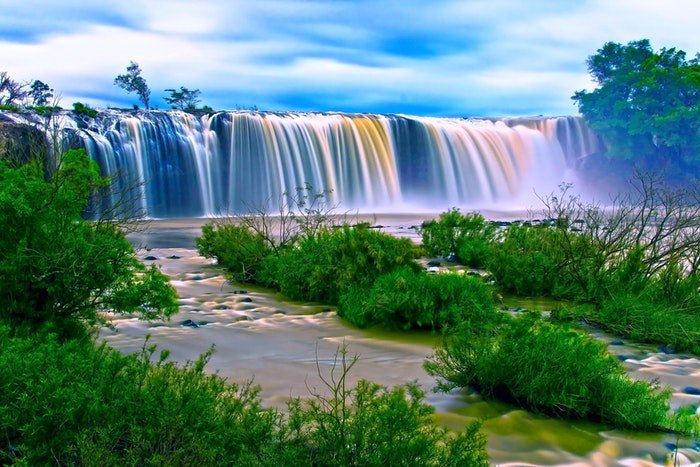
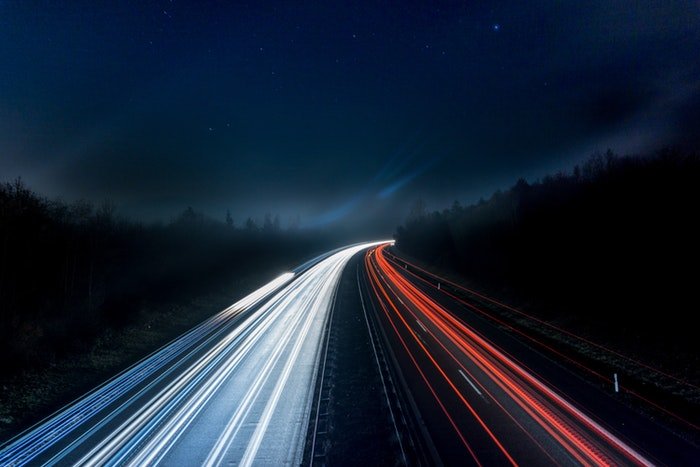
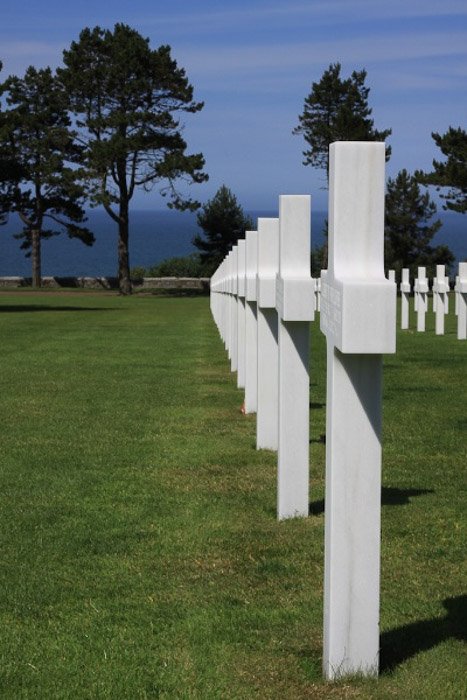
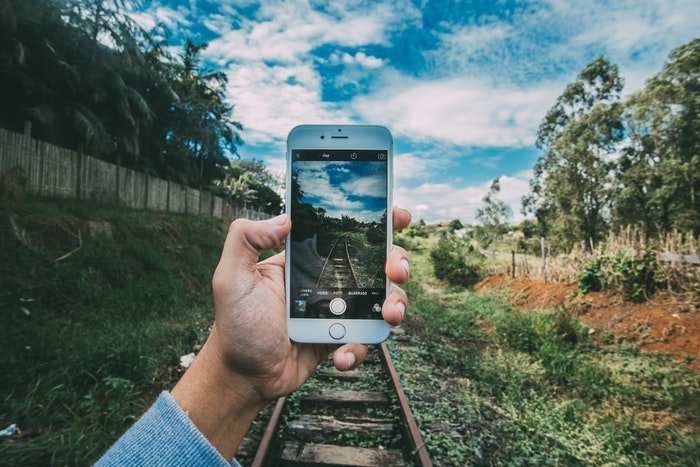
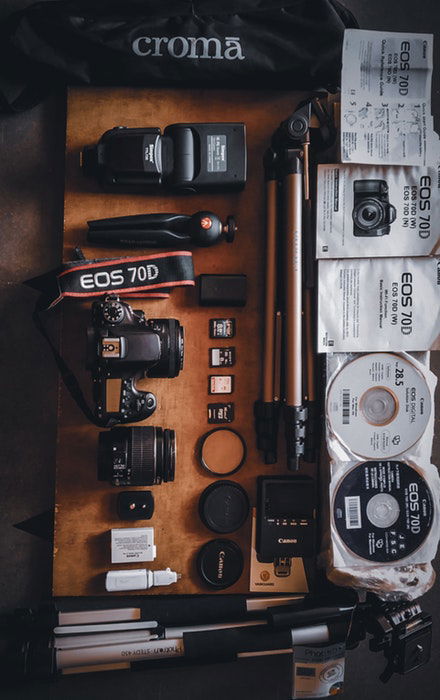
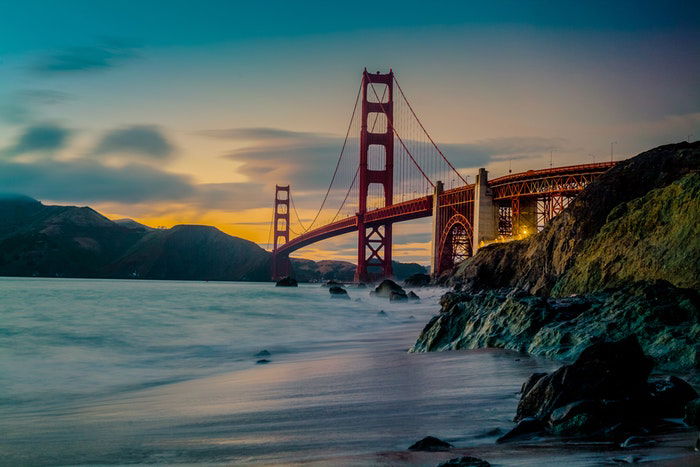
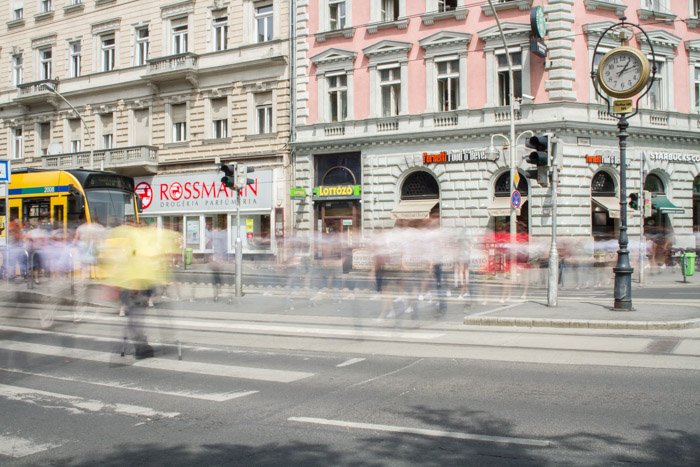
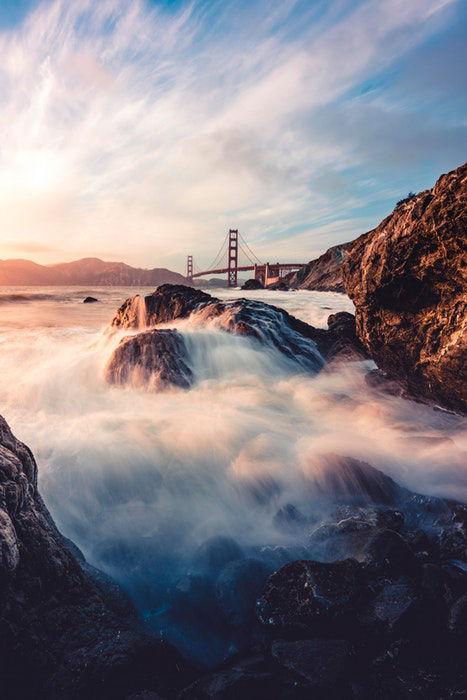
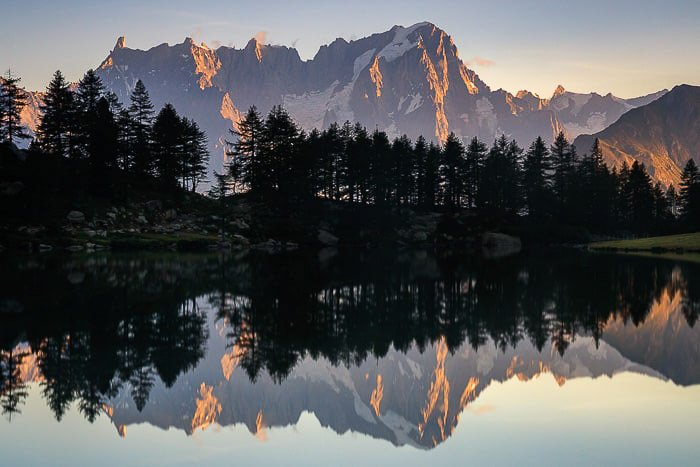
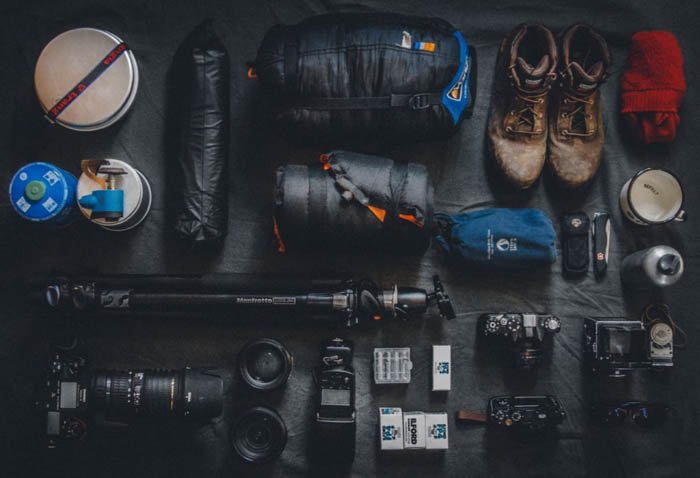
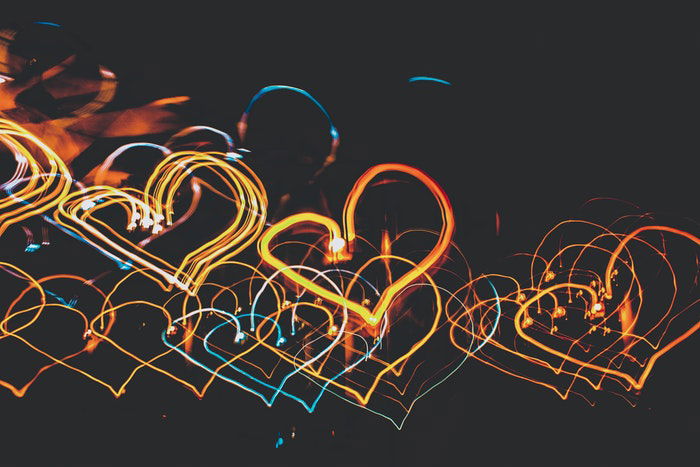
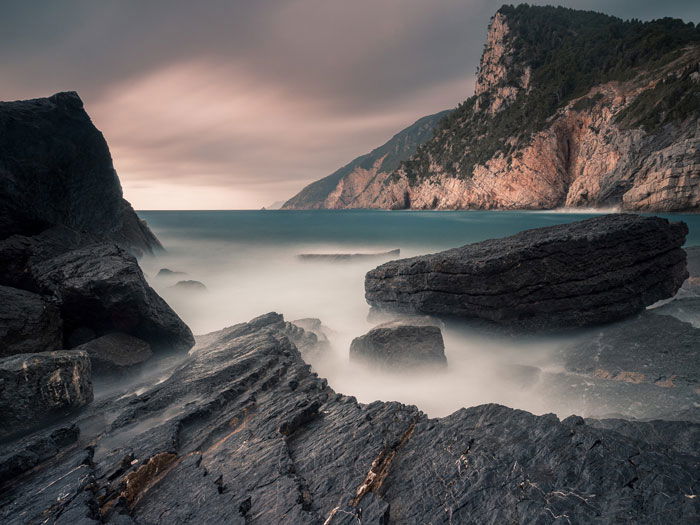
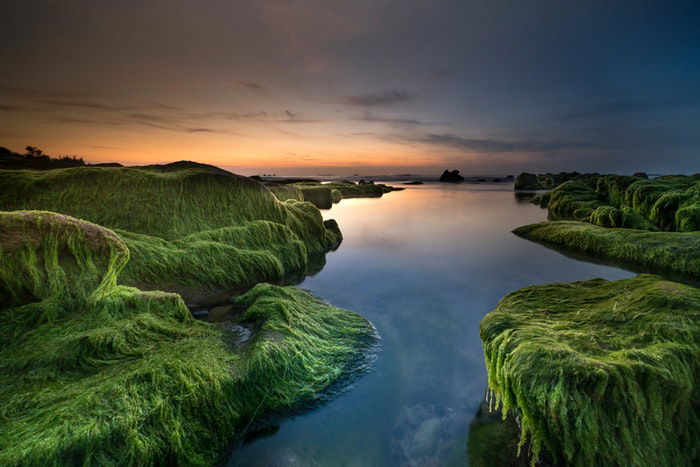
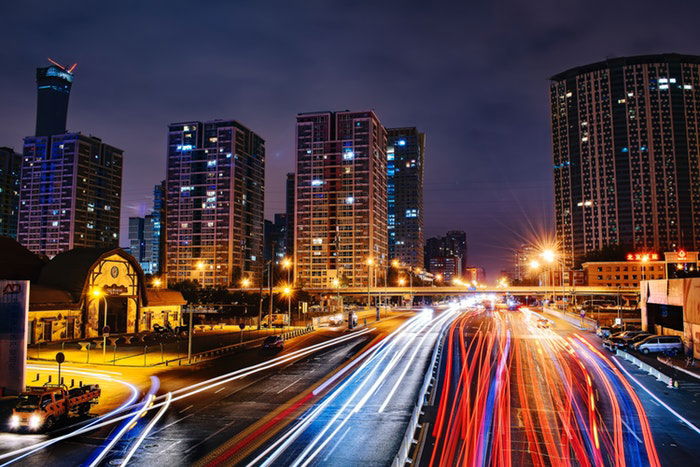
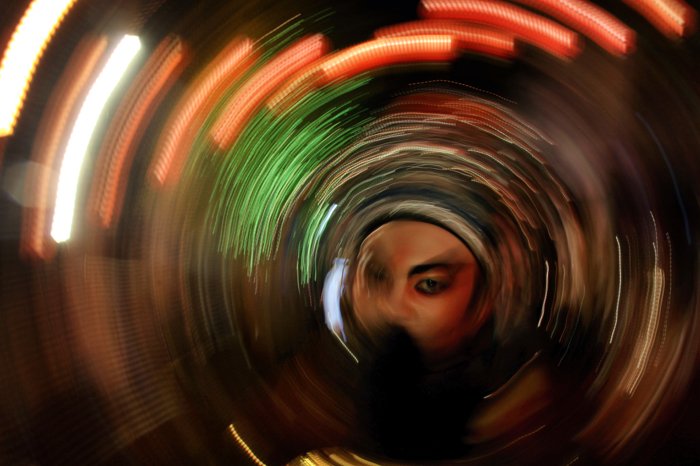
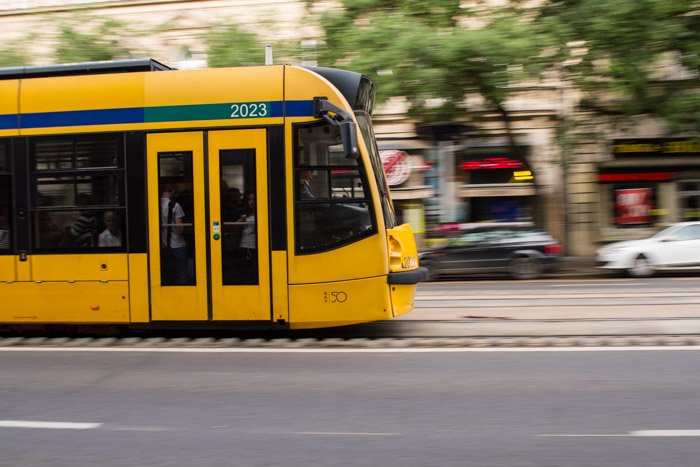
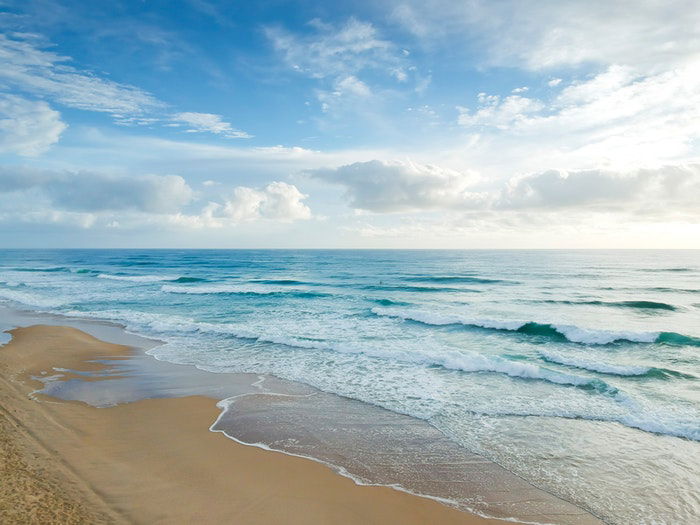
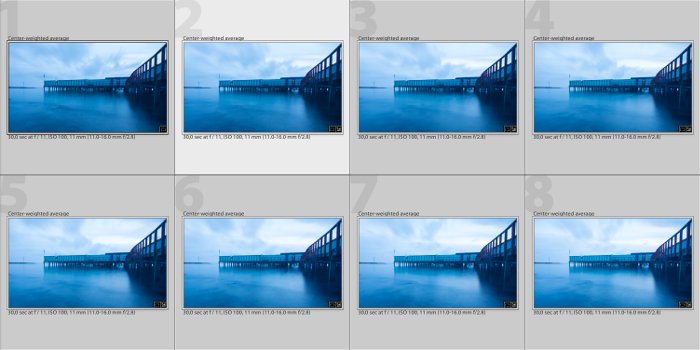
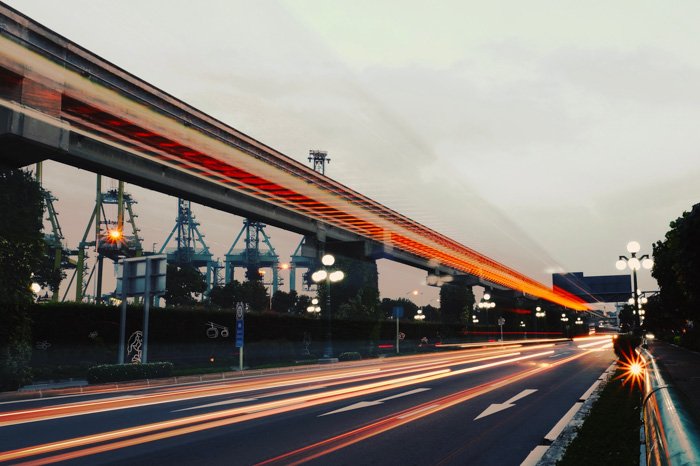
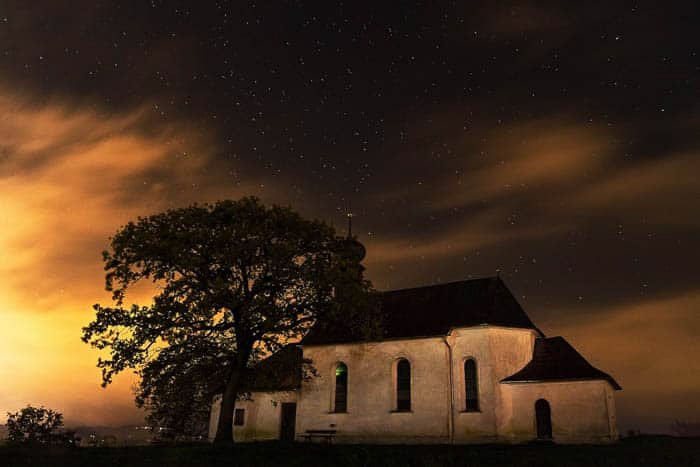
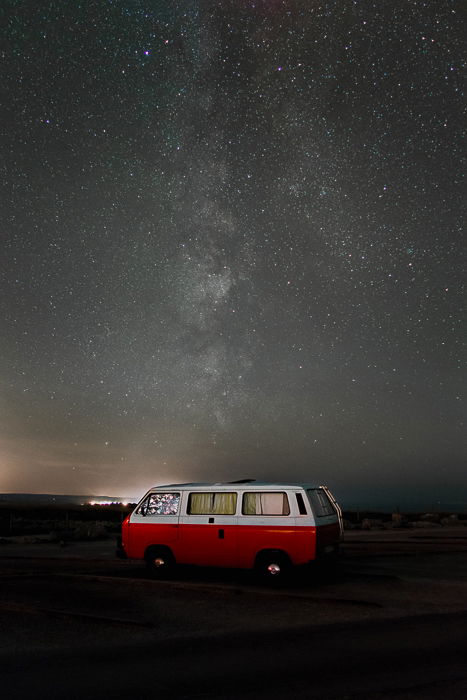
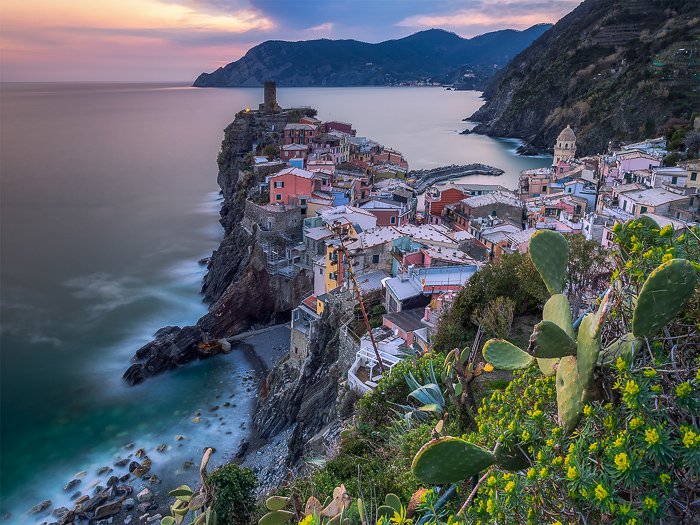
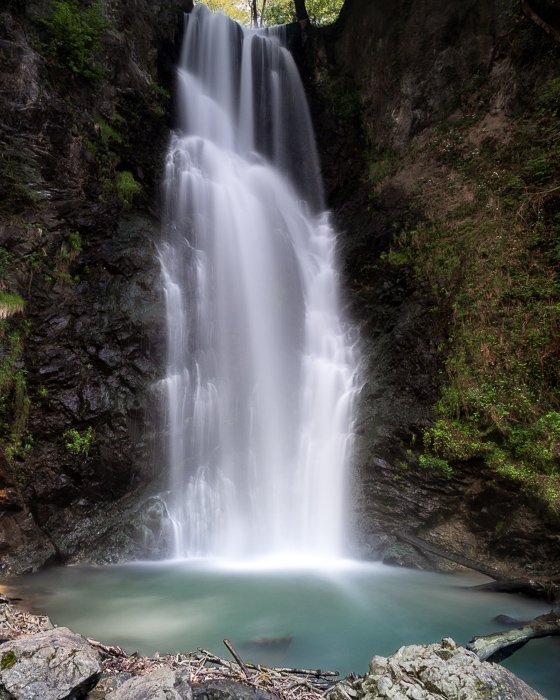
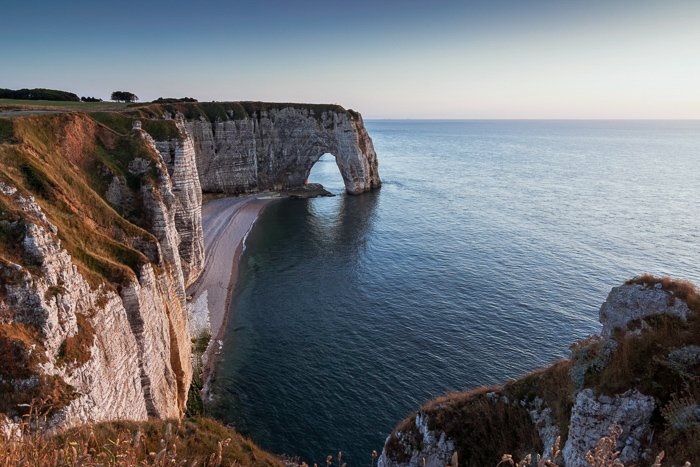
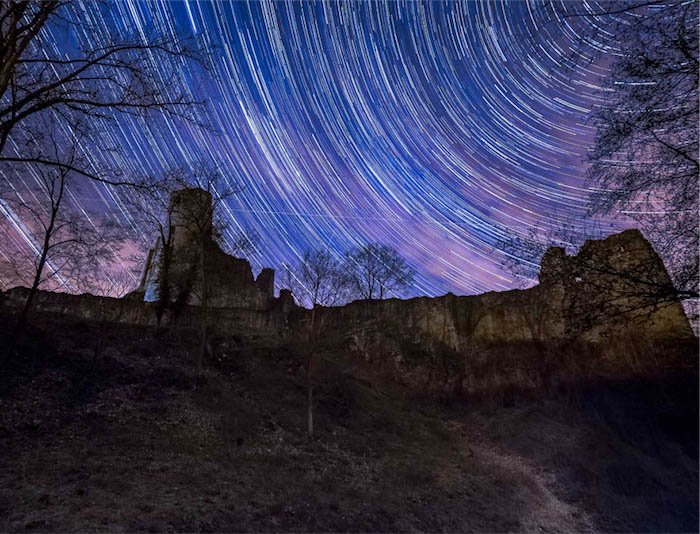
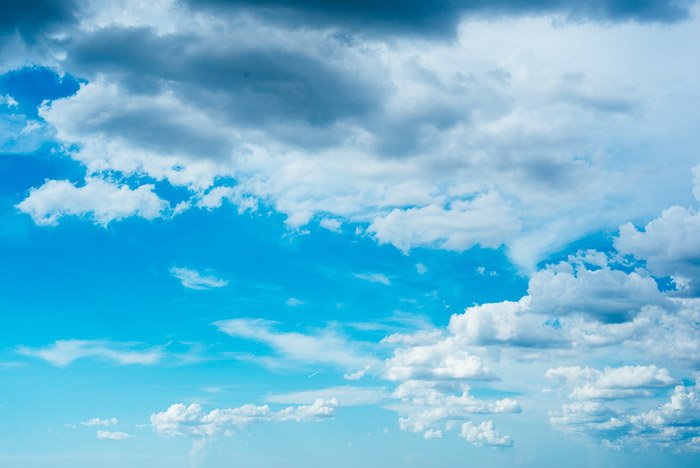
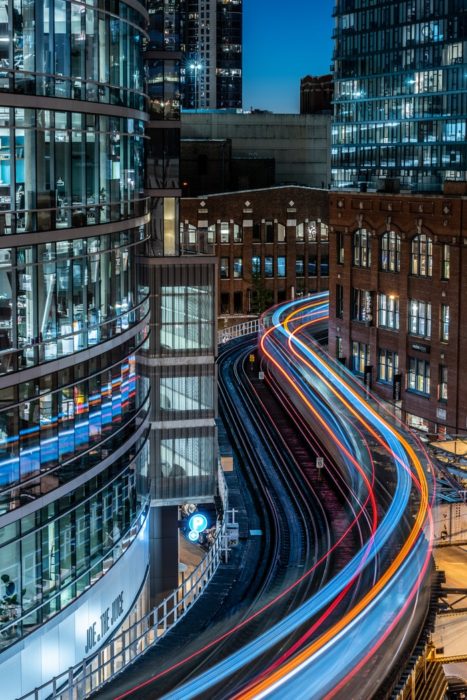
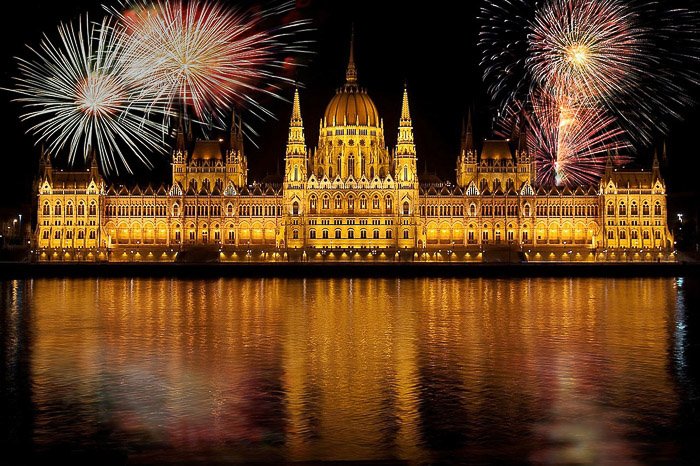
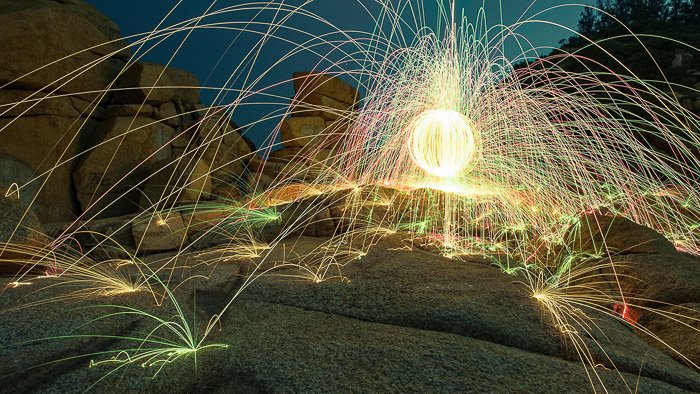
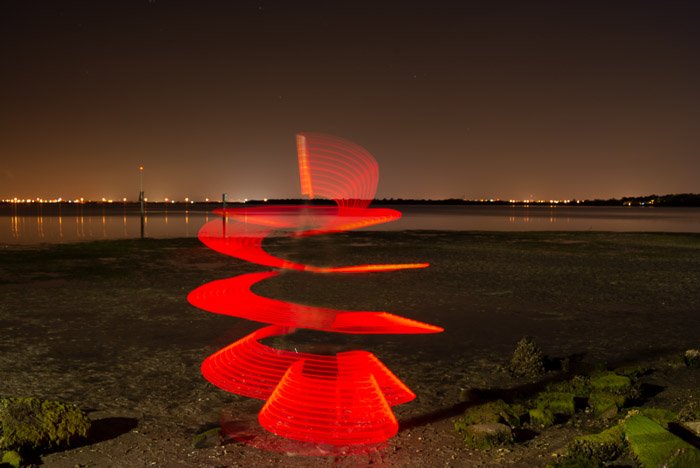
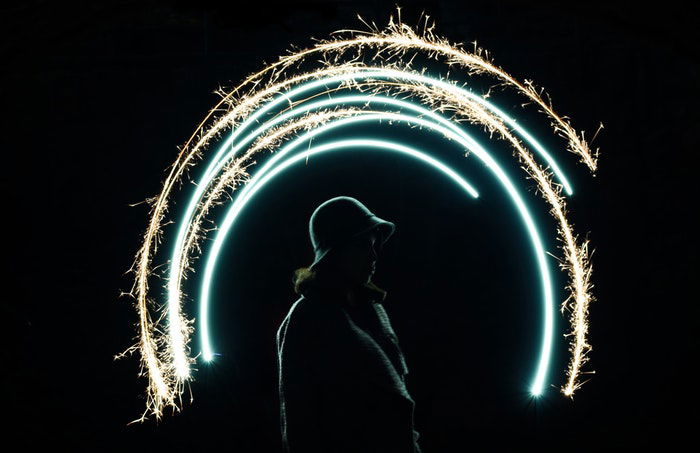
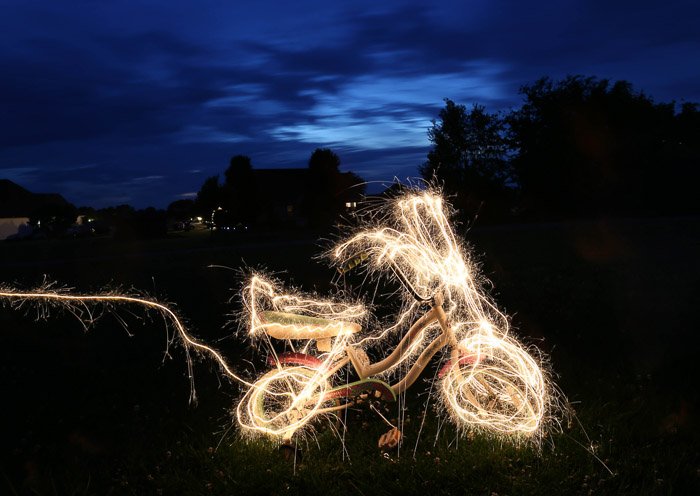
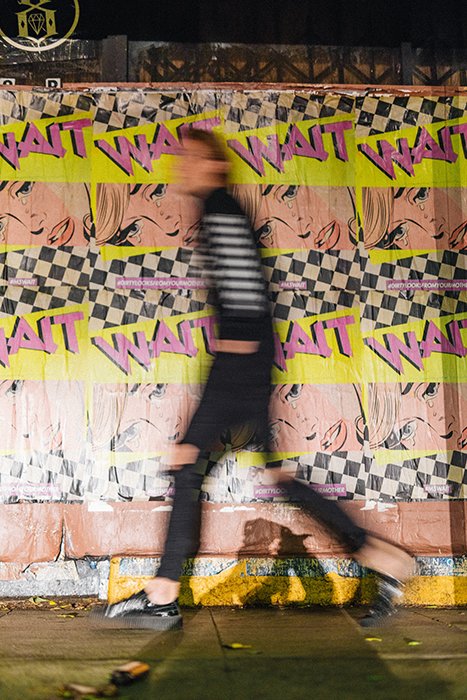
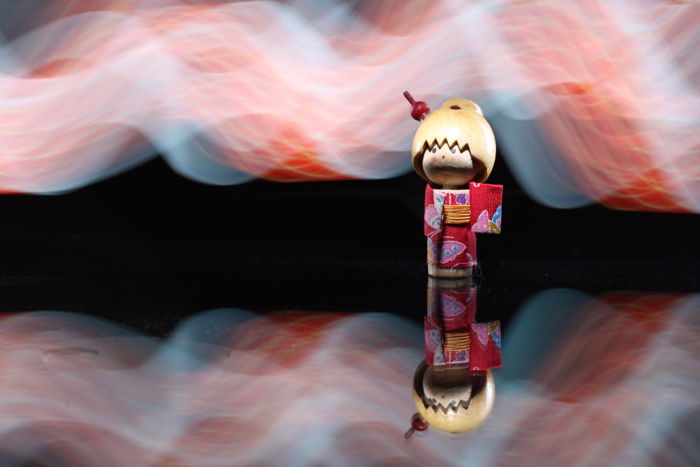
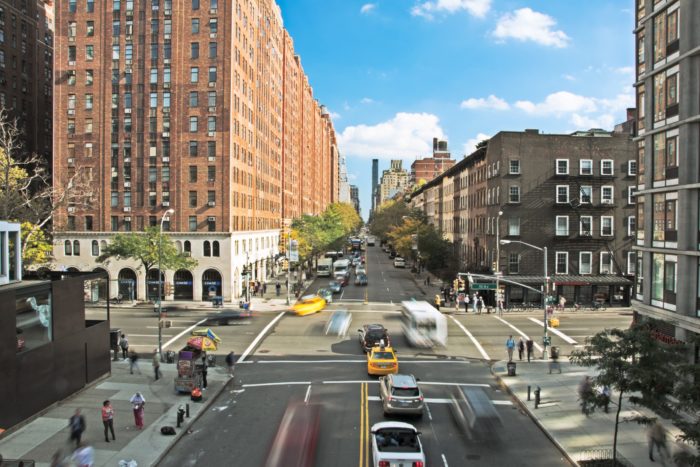
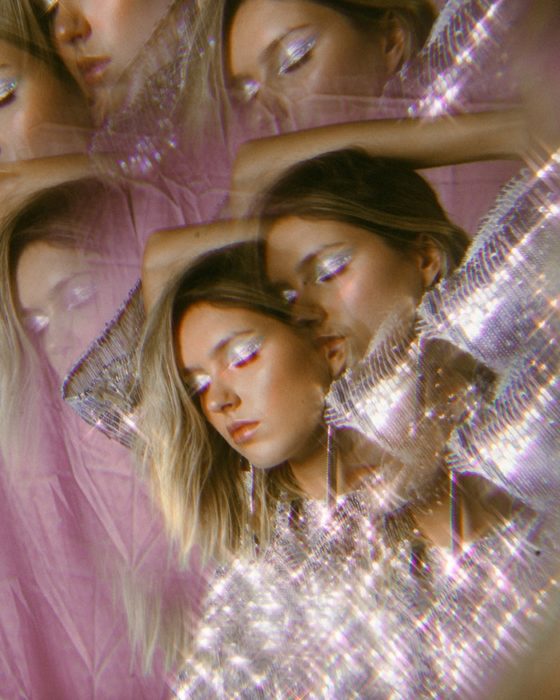
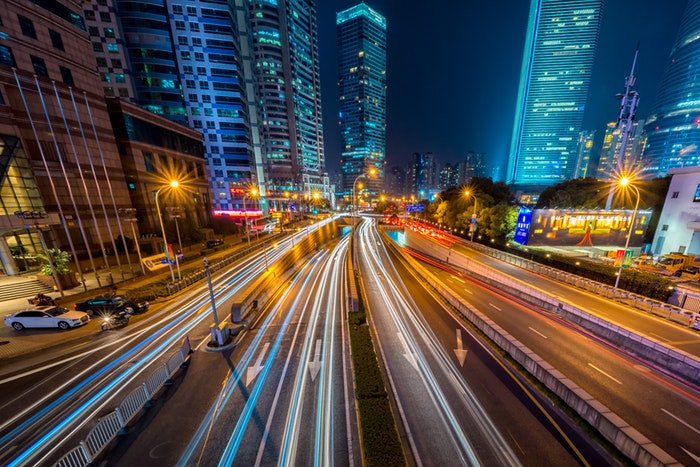


title: “The Complete Guide To Long Exposure Photography” ShowToc: true date: “2023-02-09” author: “Deanna Mason”
Long exposure photography is a technique where you use slow shutter speeds to create cool effects. This technique can be used to create a wide variety of images, whether landscapes, cityscapes, star photographs, or more. If you are ready to take your photographs to the next level, check out this complete guide. To understand the basics, get tips, and be creatively inspired, keep reading. [ExpertPhotography is supported by readers. Product links on ExpertPhotography are referral links. If you use one of these and buy something, we make a little bit of money. Need more info? See how it all works here.]
Basics of Long Exposure Photography
What Is Long Exposure Photography and How to Get Started
Have you ever seen a picture of the sea and wondered how the water looks so smooth and soft? Long exposure photography is a simple way to add some drama to your images without post-processing. It can make gushing water look smooth or transform speeding cars into red and yellow lines. Continue reading to learn how to master this technique and take your photos to the next level.
35 Stunning Examples of Long Exposure Photography
The best thing about long exposure photography is that it can be used for many different types of photographs. Long exposure photography usually falls into the following categories: water, astrophotography, light painting, light trails from cars, abstract photography, architecture, and sports. For some beautiful examples of long exposure photography click here.
Understanding Exposure
When you are taking a photo, you are capturing light. Hence, understanding exposure is the key to good photography. 3 factors affect exposure: shutter speed, ISO, and aperture. It is important to understand these factors. If you want to be a good photographer, you need to know how they can positively and negatively affect a photograph. Then you can play around with the settings to get the result you want.
How To Shoot Long Exposure iPhone or Smartphone Photos
If you are not ready to start with long exposure on a camera, you can use your iPhone or smartphone. Earlier, smartphone cameras used to be very limited. They had great Auto functions but no Manual Mode. That didn’t let you take creative shots like long exposures. The good news is, you can do that now!
Equipment
Photography Equipment for Long Exposure Shots: What You Really Need
Some equipment is essential for long exposure photography. To find everything you may need, check out this article.
A Complete Guide to Neutral Density Filters
Many times a photo won’t be perfect due to too much light. This is where an ND filter comes in. There are different types of ND filters you can use. To understand exactly what an ND filter is and how to use it, read this article.
How to Use an ND Filter to Remove People from Long Exposure Shots
We have all seen those perfect pictures of famous landmarks. But when you go to take your own shots, tourists crowd into your frame, ruining your images. So how can you take the perfect photograph without people in it? If you are shooting a famous tourist spot or want to capture a lonely beach, but people are ruining your photograph, don’t worry. There is a way to remove people from your photos, without post-processing. All you need to do is capture a long exposure with an ND filter. To understand how to make people magically disappear from your photos, read this article.
How to Shoot a Long Exposure Without ND Filter
What if you want to take a long-exposure shot in the daytime, but you don’t have an ND filter? You can still get the results you want by using a technique called photo stacking. Read this article to understand the two ways of doing this in detail.
What Is a CPL Filter? How, When and Why to Use One
Every landscape photographer should have a polariser as part of their photography equipment. There are two types of CPL filters: linear and circular. Read this article to understand how and why CPL filters are so helpful.
10 Best Travel Tripod Options
A tripod is a must in long exposure photography. Hence, it is important to consider all aspects of a tripod before purchasing the right one for you. We have rounded up the best tripods for you that are sturdy, budget-friendly, and portable.
Settings, Techniques
How To Get Creative Photos Using a Slow Shutter Speed
You can use a slow shutter speed to create many interesting effects in your photos. For example, you can capture motion blur, light trails, water and cloud movement, and much more. Read this article for 7 creative photos you can take with a slow shutter speed.
How to Use Bulb Mode: 6 Tips for Better Long Exposures
Sometimes creative long exposures need shutter speeds as slow as minutes or hours. How can you get such a slow shutter speed if the slowest setting your camera allows is 30 or 60 seconds? The answer lies in bulb mode. In this setting, the shutter will stay open as long as you press the shutter release button. Check out this article for tips on how to take really long exposures using bulb mode.
How to Calculate Long Exposure Time
If you are shooting with an ND filter, it can get complicated calculating the right shutter speed to use. You can use apps that will calculate it for you. Or, you can also do this manually, using this formula: TND = T0 X 2^ND Where:
ND = F-Stop reduction in light from filter tND = Final exposure time in seconds t0 = Correct exposure time without ND filter
How to Reduce Noise in Long Exposure Photography
In Bulb Mode, the sensor remains exposed to capture light for as long as you decide. This prolonged exposure time will produce digital noise. A small trick to get the cleanest raw files to edit in post-production is to apply long exposure noise reduction in camera. To understand more about this setting and how it helps reduce noise, check out this article.
How To Use Intentional Camera Movement in Photography
You may come across a lot of tutorials on how to keep your photos sharp during long exposures. However, sometimes photographers intentionally incorporate blurred movement in photographs. This can make their images more dynamic. There are many ways to use this technique to make your photographs more creative.
How to Use Panning to Easily Capture Movement
Panning is the most popular technique to get movement in your image. Panning is commonly used in taking panoramas, but it is also used in timelaspes, hyperlapses, and long exposures. In this technique, you use an exposure of around 1/20th of a second and follow a moving object. The idea is that you capture a moving object while moving your camera along with it, preferably at the same speed. This will give you a clear subject in front of a blurred background. This article will take you through everything you need to know about using this technique in your images.
How to Shoot Daytime Long Exposure Photography
Taking long exposure photos in the day requires a lot of technique. You can face many issues with long exposure photography in the daytime. This includes false light, camera shake, etc. To get some specific tips on daytime long exposure photography, check out this article.
Photo Stacking: Awesome Daytime Long-Exposure Photography
With all the issues of long exposure in the daytime, you can waste a lot of time trying to get the perfect shot. A more efficient way of this is photo stacking. Factors like too much light, wind, or the risk of camera shake make it worthwhile to use photo stacking for your daytime long-exposure photos.
How to Capture Great Photos in Low Light
Shooting low light can be challenging, but with some camera settings, extra gear, and techniques, you can capture great photos. This article goes through all the settings, gear, and tips that you need to capture great photos in low light.
12 Essential Tips to Mastering Creative Night Photography
If you want to take your low light photography to the next level, it is time to try night photography. Night photography produces some of the most stunning images. But it can be exceptionally frustrating to capture if you don’t know what you’re doing.
How to Use the 500 Rule to Capture Better Night Sky Photography
If you want to capture the beauty of a starry night, use the 500 Rule to estimate the slowest possible shutter speed to avoid star trails. This rule is one of the many that were created to help photographers before digital cameras. The rules helped photographers determine the right settings and get their shot right without wasting film. We now don’t need to wait for photos to be developed to see if we got it right, but learning these rules can help us shoot more efficiently. Some of the famous photography rules are the sunny-16, overcast-8 and sunset-4 rules. These deal with finding the right settings for specific daylight conditions. For night time photography, the looney-11 rule will help you correctly expose the Moon. For night sky photography, learn the 500 Rule in this article.
Landscape
12 Tips for Long Exposure Landscape Photography
Landscape photography can lend itself to stunning images even without much creativity. However, using long exposures to capture landscapes can take your images to the next level. Here are 12 tips to help you take better landscape photos using long exposures.
6 Tips for Taking Breathtaking Pictures of Waterfalls
Waterfalls are one of the quintessential subjects for long exposure photography. If you do it right, capturing silky smooth water can result in breathtaking photos. However, there are a few things to know before you head to a waterfall to shoot long exposures. Read this article to be prepared and take mind-blowing photos.
11 Tips for Photographing Cliffs and Coastlines
We have all drooled over those dramatic images of cliffs and coastlines that amazing travel photographers post on Instagram or publish in magazines. Although the photographs look spectacular, they are not so difficult to shoot. Check out these eleven tips that will help you start shooting gorgeous photos of coastlines and cliffs. Some of these tips can also be used in general landscapes, seascapes, and ocean photography.
How to Photograph Star Trails at Night | From Landscape to Cityscape
Intentional camera movement, like panning, and long exposures that capture star trails can add magic to your photography. To get star trails in your photographs, all you need to do is take a long exposure of the sky. Here are all the necessary camera settings, gear, accessories and techniques that you will need to take your own star trail photographs.
How to Take Great Photos of Clouds
Taking photos of moving clouds is another way of capturing movement in your photographs. Different types of clouds can evoke different moods in your image. Check out this article for everything you need to know to take amazing photos of clouds. You will find types of clouds, long exposure settings for clouds, and many more tips.
Creative
How to Shoot Fantastic Light Trails
At night, cities light up with an array of color, providing the perfect opportunity to capture light trails. With long shutter speeds, you can capture luminous light trails. To learn how to add that wow factor to your urban night photography with light trails, read this article.
How to Photograph Fireworks in 8 Easy Steps
Fireworks are dazzling affairs, but to capture them requires the right knowledge and gear. If you don’t have the right technique, you will end up with blurry shots or overexposed shots. It takes patience and understanding the technique to get the splendid firework shots you see online. To learn how to take the perfect firework photograph, check out these 8 tips.
How To do Steel Wool Photography
Steel wool photography is a variation of light painting that uses a material called steel wool. Experiment with this type of photography to create very interesting and unique photographs. The best part about this technique is that it does not require expensive gear, and can create very interesting photographs.
Spiral Light Painting: Cool Photography Ideas to Try Today
Spiral light painting photography is a great way to create cool and colorful photographs. While it creates very unique photos, it is not a technical process. Here we show you exactly how to use this easy technique to take fun and interesting shots.
How LED Light Sticks Are Taking Light Painting Photography to a New Level
Light painting is a technique that uses long exposures to capture moving light as streaks. Earlier people used flashlights. But, flashlights did not have variety in color. A great way to try light painting photography is to use LED light sticks. They are a colorful and easy tool to use in light painting photography.
How to Create Impressive Light Graffiti
Light graffiti is very similar to light painting. You can do this with a torch, a sparkler, a fire, or even a still light source by moving your camera. To read more about light graffiti, check out this article.
50 Stunning Examples of Motion Blur Photography
Daily life is full of movement. Hence, movement is a great subject to create thoughtful and slightly abstract photographs. Here are 50 different ways you can capture the stories that motion tells.
How to Use Your Smartphone to Create Stunning Light Painting Photography
You don’t always need fancy equipment to be creative. Once of the most creative types of photography is light painting. Although there are various techniques, one of the simplest is using your smartphone. Here are various tricks on how you can use your smartphone in light painting photography. You can either use it as the camera to take light painting photographs, or you can use it as a light painting tool.
How to Take Long Exposure Time Lapse
Shooting a time lapse in the daytime can be difficult. As the shutter stays open during the time lapse, light will keep pouring in, leaving your photo very overexposed. If you want to find out how to shoot a long exposure timelapse in the daytime, check out this article.
How to Shoot Long Exposure Portraits
You can create very unique portraits with the light painting technique. The combination of light and a human face creates abstract and surreal photos.
How to Shoot Night Cityscape Photos (Long Exposure)
Cities at night have a buzzing energy that makes fantastic images. You can take some amazing cityscapes using long exposures. This way, you will capture light trails, colors, and a lot of movement. In this article, find out exactly how you can take cool cityscapes at night.
Conclusion: Street Photography Quotes
You can use long exposure photography in almost every genre; landscapes, portraits, night or day. This technique allows you to experiment and create images that you would not be able to with a short shutter speed.








































